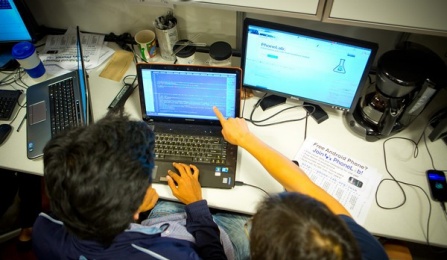CSE Ethical Use of Computers Policy

Honesty is the underlying principle for all computer use. At one extreme, significant violations of academic integrity may result in penalties including dismissal from the university. More generally, common sense, civility, and respect for another's rights and computer property is as important to our CSE community as proper treatment of our equipment.
We ask that you follow these rules:
- Respect the privacy of others. Do not in any way examine or change files or passwords belonging to others. Do not violate the privacy of individuals or organizations.
- Respect the integrity of the computing systems. Do not develop or use programs that invade, damage, or alter computing systems or software. Do not in any way harass other users.
- Always identify the user accurately. Never use someone else's account. Do not use fraudulent means to avoid accounting for the use of computing services.
- Respect copyrights and licenses. To copy a licensed computer program is illegal; it is indeed theft.
- Respect the intellectual property of others. Individual programming assignments are expected to be done by individual students; do not take another's work or ideas to call your own.
- Exhibit responsible, sensible use of computer hardware, software, and data.
Adapted with permission from Computer Literacy by Helene G. Kershner, CSE Assistant Chair Emerita.
